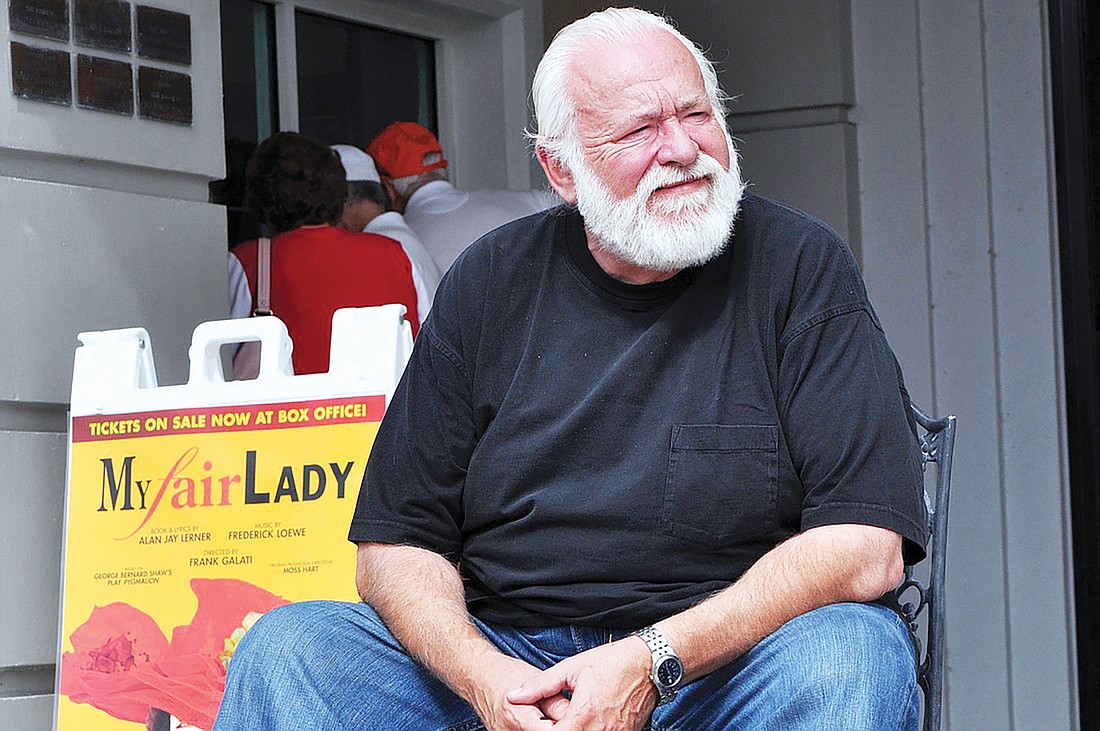- May 20, 2024
-
-
Loading

Loading

Shortly before Christmas, Michael Donald Edwards, producing artistic director at Asolo Repertory Theatre, stopped by the Indian Beach home of Frank Galati and Galati’s husband, Peter Amster. Not knowing this would be his last chat with Galati, Edwards sat and laughed with his friend and colleague like it was any other day.
Although his once larger-than-life presence had taken on a more diminished appearance, Galati, who had been battling cancer for some time, was as spirited as ever.
There was no mention of illness and no sad goodbyes. Like so many creative genius-types, Galati — a pioneering director, actor and screenwriter with two Tony Awards and one Oscar nomination to his name — was still turning over project ideas in his mind. He shared one project with Edwards, who felt like he’d just been gifted a treasure.
“We talked about everything from the classical world of Senecan-style (drama) to poetry to live theater,” Edwards says. “The Galati magic was still there — even after he was gone I could feel it. I can still feel it.”
Galati, who died Jan. 2, was regarded as something of a mythical figure among theater veterans. A pioneering member of Chicago’s Steppenwolf Theatre Company and an associate director at the Goodman Theatre, Galati’s credits and accolades spanned decades across both theater and film, including an Oscar nomination for his 1988 screenplay for “The Accidental Tourist,” two Tony Awards in 1990 for his adaptation of John Steinbeck’s “The Grapes of Wrath” and a Tony nomination in 1998 for the original staging of “Ragtime.”
Those who worked with Galati say the director, who also was a full-time faculty member of the Department of Performance Studies at Northwestern University, had an otherworldly essence — “like he was in his own stratosphere,” says actress Andrea Prestinario, who played Eliza Doolittle in the Galati-directed production of “My Fair Lady” at Asolo Rep in 2011.
When Prestinario ended her run as Eliza, she asked Galati if he would write her a letter of recommendation to attend the school at Steppenwolf. The actress, who would later go on to work with Galati once more in Asolo Rep’s production of “1776,” says the director’s blessing helped seal her acceptance to the prestigious theater training program.
“We didn’t deserve him in a way,” Prestinario says. “The way he would communicate with actors and fellow creatives, … he would use play and imagination to create a room and a process that allowed you, as an artist, to feel comfortable enough to make mistakes. He would zoom out and let you make choices and then slowly zoom back in and help massage the scene. He was masterful as a director, a special human. I was lucky to be in his orbit.”
Galati arrived in Sarasota in 2010.
At the urging of Amster, who had worked with Edwards decades ago at the Oregon Shakespeare Festival, Galati agreed to helm Asolo Rep’s “Twelve Angry Men.”
Amster was already working as an associate artist at the Sarasota theater company, and Edwards was desperate to get Galati on board as well.
“I had seen ‘The Grapes of Wrath’ and other shows at The Goodman and I was very intimidated at first,” Edwards says. “Frank Galati was this iconic figure to me, one of the most professionally inspiring directors in the business. One of my greatest joys in life was being able to persuade him to direct something here — and unbelievably, I succeeded nine times.”
Almost presciently, the director ended his nine-year run at Asolo Rep with last year’s world premiere of the musical “Knoxville,” which he adapted from the James Agee novel “A Death in the Family.”
“Frank was an acute observer,” Edwards says. “He saw what others didn’t. He could pull out feelings we didn’t even know we gave them voice and expression.
“I deeply loved him, not only as an artist but as a friend. He was a part of my chosen family, and I miss him profoundly.”